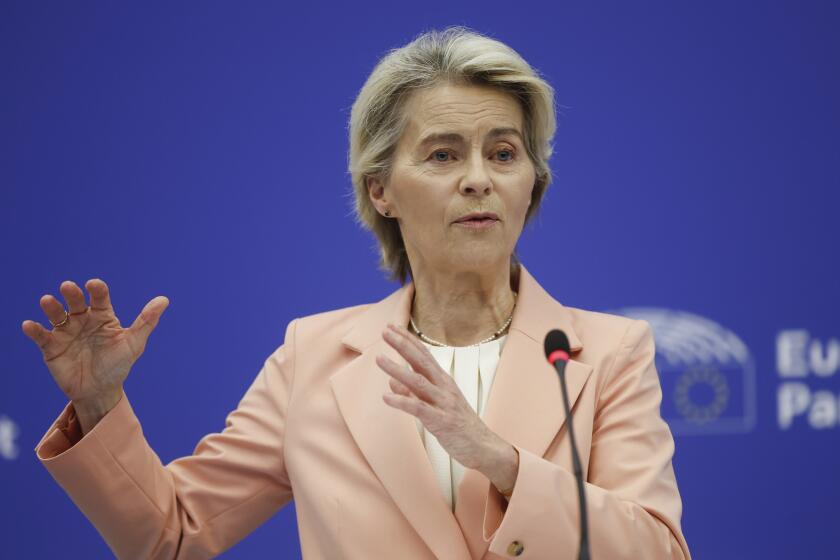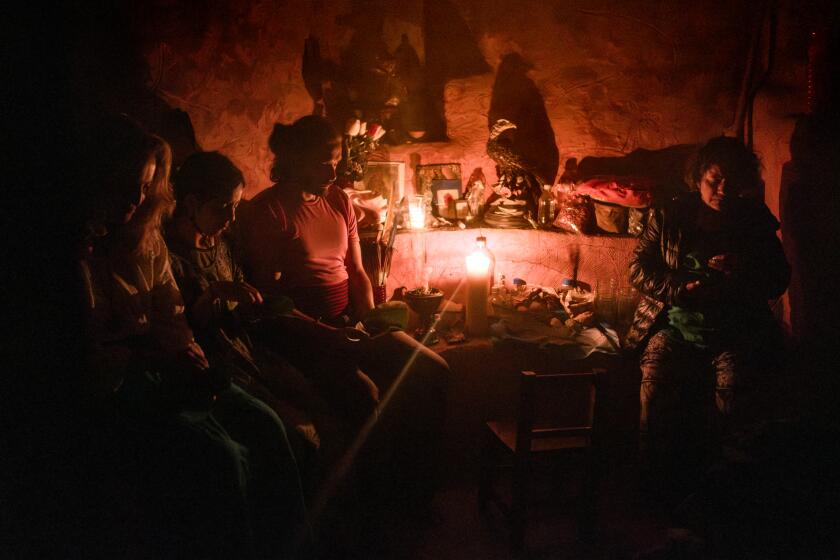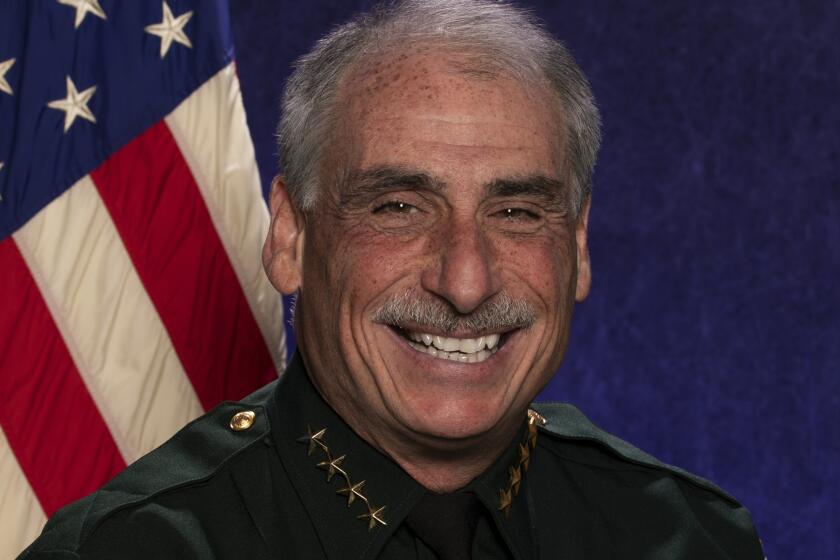Thousands protest Georgia’s leader
Thousands of flag-waving demonstrators stopped Tbilisi traffic Friday in the first major protest against President Mikheil Saakashvili since Georgia’s war with Russia.
The United Opposition coalition brought more than 10,000 protesters onto the streets of the capital, one year after riot police used tear gas, rubber bullets and water cannons to disperse peaceful demonstrators calling for Saakashvili’s ouster.
The crowd was far smaller than the throngs whose protests culminated in the crackdown last year.
Widespread skepticism is undermining Saakashvili’s claims about the war this year, emboldening former allies angry about the botched conflict and alienated by what they call his authoritarian style.
But a fractured opposition, fear of renewed hostilities with Russia and lingering support suggest the gathering political storm is unlikely to topple the pro-Western president soon.
“There’s no sign in the last week that the wheels are coming off the bus,” said Jonathan Kulick, an analyst at the Georgian Foundation for Strategic and International Studies. “You have an administration with somewhat less appeal to its foreign friends and benefactors, but I just don’t see that he’s on the way out.”
Anger over Georgia’s losses in the war has compounded dissatisfaction among Saakashvili’s opponents, but it appears to have gained little traction so far among the general population.
A September poll conducted by the U.S.-based, government-funded International Republican Institute indicated support for Saakashvili and his government was higher than before the war. A majority of those polled -- 52% -- said they would vote for Saakashvili if elections were held the following Sunday. Ana Jelenkovic, an analyst at the Eurasia Group, said the numbers probably were less a reflection of Saakashvili’s popularity than of the opposition’s failure to present a coherent, attractive message.
“There’s ample room for a political opposition,” she said, “but that political space simply hasn’t been filled.”
More to Read
Sign up for Essential California
The most important California stories and recommendations in your inbox every morning.
You may occasionally receive promotional content from the Los Angeles Times.










